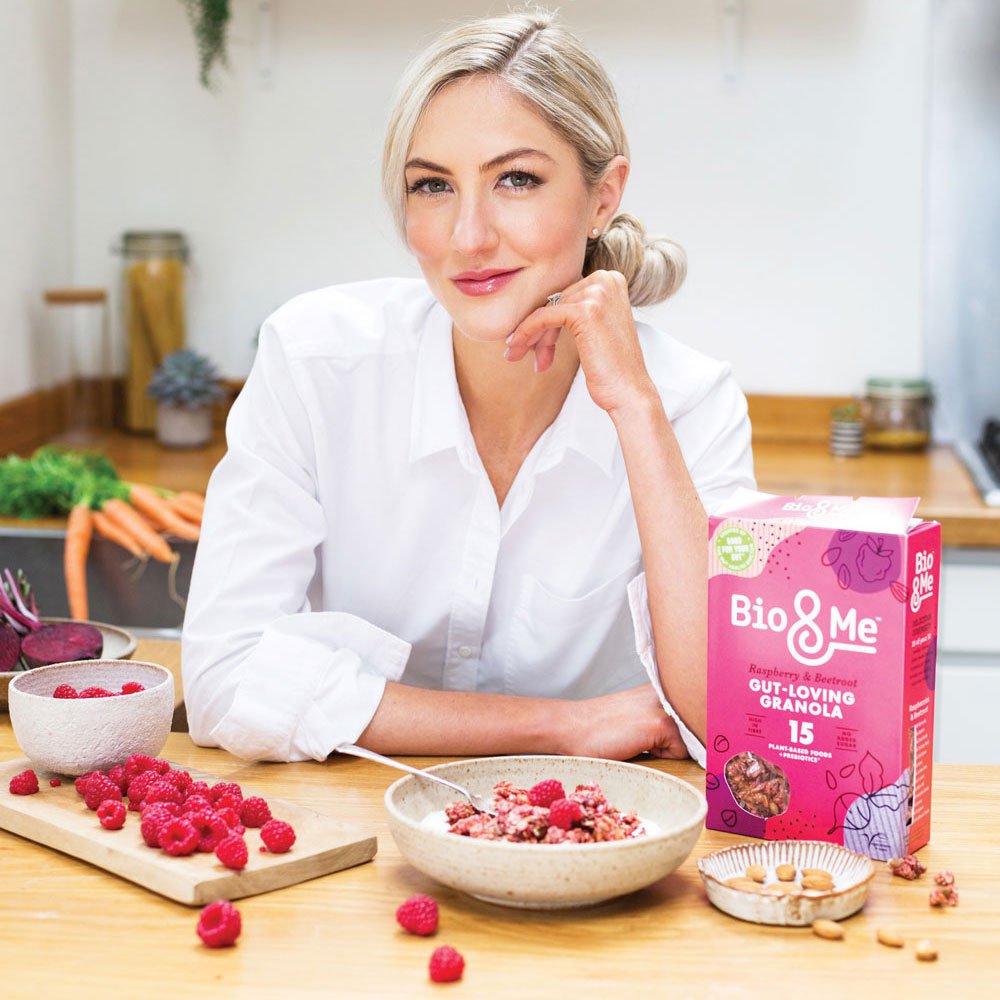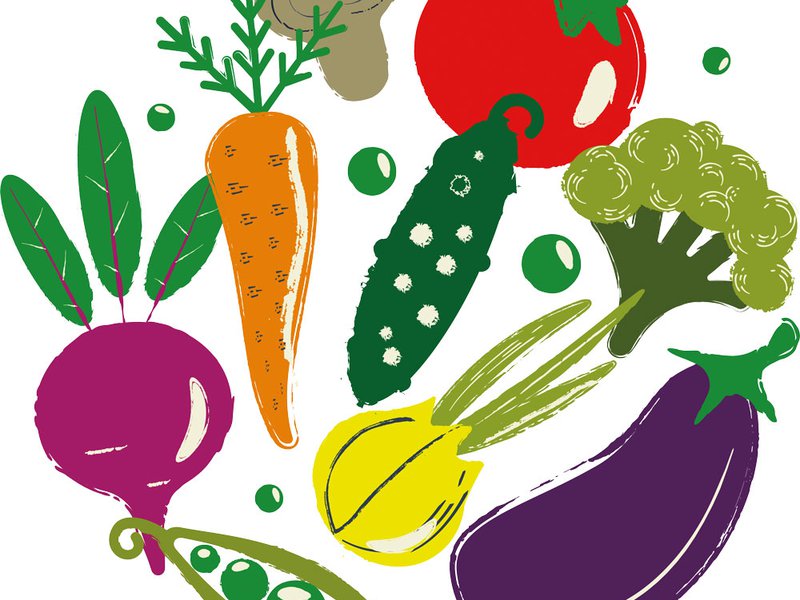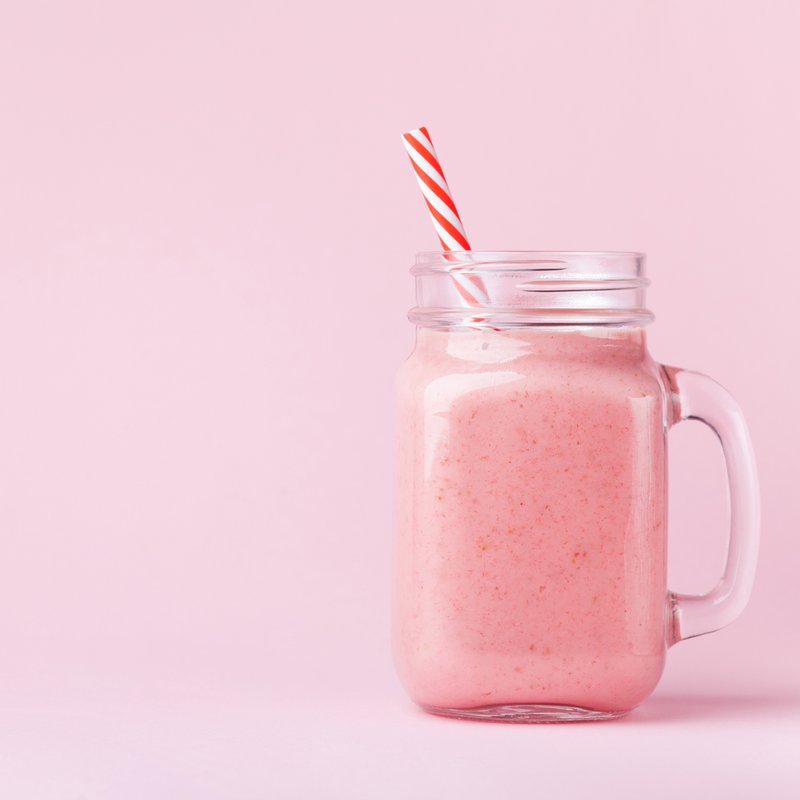Here, Dr Megan Rossi explains how nourishing the gut can have far-reaching health benefits
The gut is said to be the organ of instinct. The place where we know things, or feel them, on some level that bypasses the intellect. So, it makes a kind of sense that we didn’t really understand how it works until recently, and much of its operation remains a mystery.
Discoveries made in the colon and small intestine over the last 10 years have practically formed a new branch of science. Major studies by specialist facilities have established how human “fight or flight” responses are rooted in the gut, where stress hormones impair its proper functioning. How the fibre of certain foods – the baobab fruit, to take one curious example – can have a biotic effect as powerful as insulin. How the co-called “Mediterranean diet” can help the digestive system to produce serotonin and thereby reduce anxiety.
“We now know that nourishing the gut can have far-reaching benefits that go way beyond the health of the gut itself,” says Dr Megan Rossi. Now a trusted public figure who goes by the promotional title of “The Gut Health Doctor”, her own medical work has branched into other areas, not least producing yoghurts and granolas through her food brand Bio&Me.
Doctor Rossi’s advancement to the forefront of the field has corresponded with the last decade’s clinical boom in the nutrition and gastroenterology. She grew up on a farm in Queensland, eating fresh, home-grown fruit and vegetables but also playing in the dirt, which she later learned was just as important in terms of forming healthy internal habits.
“Being exposed to many different types of bacteria teaches the system to react to them appropriately.” As a PhD student, her research covered probiotics (the live bacteria resident in the gut), prebiotics (the food that sustains those bacteria), and the “symbiotic” relationship between them. When she graduated in 2010, experts were only beginning to realise that they had badly misunderstood what was happening in that particular micro-environment.
“We’ve known for more than 100 years about these organisms that live in our gut,” she says, “but for a long time we thought there was only a small number of them, and that they didn’t do a whole lot.” Which is to say, laboratory professionals got the wrong idea from looking in petri dishes. “Turns out the bacteria are smarter than that and many of them don’t grow in those conditions. But technology now allows us to identify bacteria by their DNA, like a fingerprint, so we’re much better able to tell who is in there, and what they’re doing.”
This is how we’ve lately learned that there are more bacteria in that one part of the body than human cells in the rest of it, and different types have myriad “skill sets” as Doctor Rossi puts it, including vitamin and hormone production. Some 70 per cent of our immune system also resides in the gut, so it stands to reason that our general health all but depends on how we regulate digestion. As new information has fed into the public sphere, magazines, bloggers and health websites have come to obsess over the question of gut health.
Social media has been helpful in some respects, says Doctor Rossi, “but not everyone is using it for educational purposes”. As a clinical research fellow and consulting dietician at King’s College in London, she has seen many clients with digestive problems exacerbated by faddism and misinformation. “They’re often following these crazy restrictive diets that cut out things like grains and legumes because they’ve heard or read that’s better for the gut. All the research shows the opposite, that good gut health is about trying to consume as diverse a range of plant-based foods as you possibly can.”
She became The Gut Health Doctor in large part to combat those falsehoods, and actively promote the kind of diet that’s been proven to help mitigate a range of conditions, from bloating and constipation to assorted mental disorders. According to one recent study, 44 per cent of sufferers with Irritable Bowel Syndrome (IBS) also manifest some type of anxiety. This has often led to the IBS being misdiagnosed as psychosomatic in the past, but the complex links between gut and brain are now being steadily untangled.
Doctor Rossi has come up with useful analogies for the three main strands of the “gut-brain axis”. One is the vagus nerve, which she likens to a mobile phone, “zipping information up to the brain”. Then there’s the immune system, which acts like an “alarm signal”.
“It detects something going on and produces inflammatory markers that then notify the brain.” Finally, there’s the “postal service” provided by the bacteria themselves, as they eat food and generate chemicals that slip across the blood-brain barrier like letters through a slot.
This naturally gives grounds for hope that better regulating the gut will yield positive results in the brain. “There’s quite strong evidence that a gut-boosting diet can lead to clinically relevant improvements in people diagnosed with moderate-to-severe depression.”
There is also, of course, the age-old differential between what we know, and how we act. At this point, we may well be aware that probiotics will do us all sorts of good, while maintaining our bad eating habits out of sheer inertia, or day-to-day lack of resolve. And this is why The Gut Health Doctor branched out into Bio&Me.
“A lot of people know they should eat more plant-based foods, but they live busy lives, or they’re not great at cooking. Education is half the battle, the other is having convenient, gut-healthy foods readily available.”
Every bowl of granola, yoghurt, or muesli in the Bio&Me range, coming soon to Spinneys, is packed with 15 “plant points” – fruits, vegetables, legumes, beans, spices, and so on – thus saving you from sourcing them all yourself. “Research shows that people who eat 30 types a week have better gut health.”
There’s also eight grams of fibre in each, because studies have also shown that increasing daily intake by that amount reduces risk of heart disease by 19 per cent, type two diabetes by 15 per cent, and colon cancer by seven per cent.
Doctor Rossi’s approved formula for probiotic yoghurt also contains some 700 billion “good” bacteria per pot, including the two most studied cultures in the world – LGG and BB12. Which is to say, there’s a sound evidential basis for its benefits, though The Gut Health Doctor is not about to tell you that buying her product is all you need to do, diet-wise.
“Yeah, it’s not like you should only eat Bio&Me, regardless of what the business people might suggest. Think of it as a foodie brand that happens to be good for your gut.” There’s medical research and then there’s marketing research, which shows that “flavour and taste” are as vital as health-giving properties. “We know people just won’t compromise on those things.”


